Photo
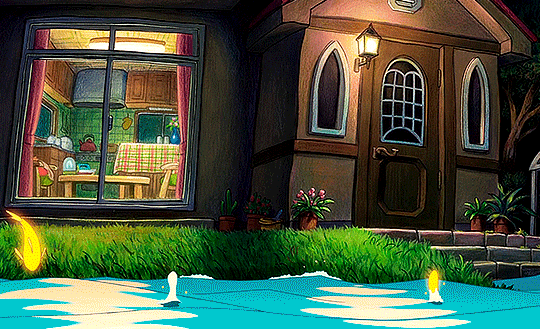
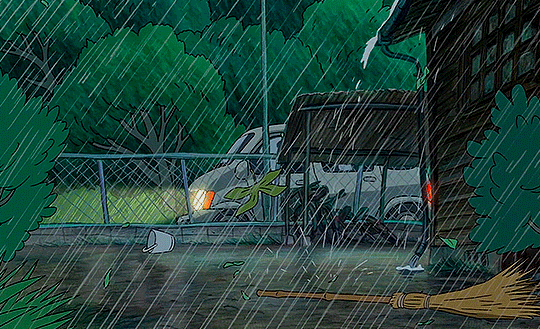
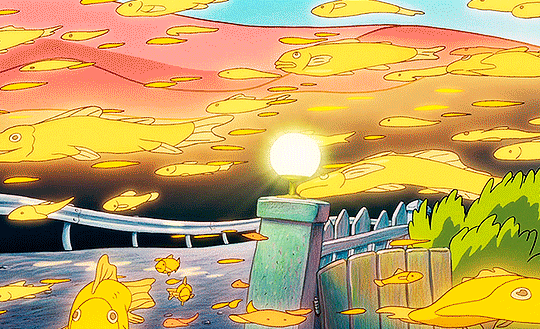
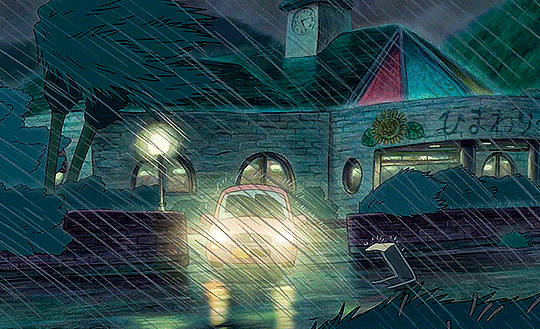

Ponyo ‘崖の上のポニョ’
2008, dir. Hayao Miyazaki
5K notes
·
View notes
Text
GENRE FICTION COMMENTARY
"A short story is a different thing altogether – a short story is like a quick kiss in the dark from a stranger." (King 1985)
In class, we learned that short stories don't need to be super dramatic. They can be about something slight, and that revelation somehow changes things. You can describe it as seeing a story from the corner of your eye, rather than a full picture.
The four genres we are currently studying within this module are Crime, Horror, Fantasy, Science Fiction, and some sub-genres that fall in between.
Fantasy is a part of speculative fiction, and elements of fantasy can even be found in early texts such as The Epics of Gilgamesh (Gilgamesh 2100 BC). Common conventions of the fantasy genre include the use of magic and supernaturalism. Fantasy often relies on the reader to suspend their disbelief, and put aside what they know to be ‘real' in order to fully submit to the world of the story.
Favourites such as Lord of the Rings (Tolkien 1954) are often associated with fantasy, however, contemporary fantasy also includes dystopian literature, which is hugely popular right now. For example, The Hunger Games (Collins 2012) and The Maze Runner series (Dashner 2013) are popular YA fantasy which have achieved commercial success.

There are also many sub-genres of science fiction, such as punk (steampunk, cyberpunk etc.), Hard vs. soft sci-fi, post-apocalyptic fiction, which were outlined in Jim Clark's lecture. Whilst world building can be very technical within this genre, it is important not to use too much jargon or unnecessary information about your world, as it can take away from the readers belief (Novum), e.g. time travel.
Isaac Asimov, the writer of I, Robot, believes that ‘Science fiction can be defined as that branch of literature which deals with the reaction of human beings to changes in science and technology.' (Asimov 1981).
We are learning about horror right now, however, I have written horror before. Some elements of horror stories are a dark mood and atmosphere, exploring the darker side of humanity, unexpected incidents, violence and gore, etc. In addition to this, Gothic horror is often very sensual.
It is important to consider that genres are constantly evolving, and elements of the genres mentioned are constantly in flux. What is popular right now may not be popular in a few years, or on the hand, it could have a cult status like Dracula (Stoker 1897).
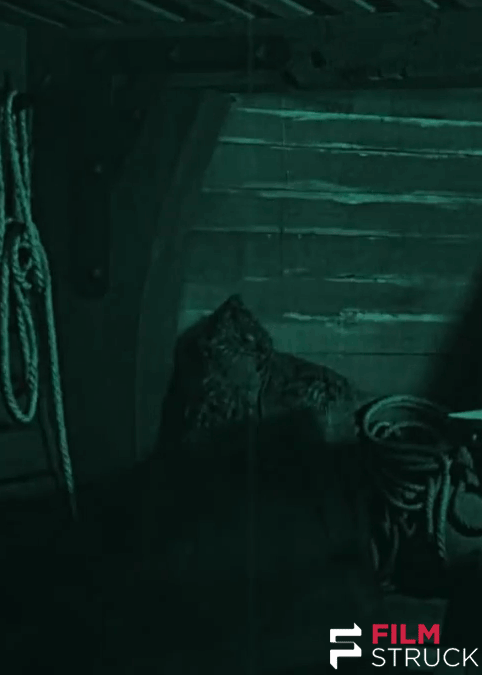
The trouble with genre is that it can be restrictive or formulaic for writers whose ideas may not fit neatly within the confines of a certain genre, in which case writers can consider their work as literary fiction. When showing our writing to publishers, it may be off-putting for them if our work isn't easily marketable.
On the other hand, fitting within a genre can also be useful when categorising a book in a bookshop or online. It is easier for target audiences to find our books if they fit into a genre, but they can equally get lost amongst of other books within that genre.
In her book ‘Writing short stories', Ailsa Cox writes that ‘The short story is a protean form, encompassing infinite variations, and just like the novel, shading into other genres' (Cox 2016).
My short story is about a twenty-five year old man named Saeed, who is being held captive in a small, bare house in an unidentified location. This first-person narrative voice follows the reader through his daily routine of eating, sleeping, writing etc. His compulsive habits frame him as a strange character, but I want the reader to feel sympathetic of him. He describes his parents as mute but menacing, claiming that he would be instantly killed if he ever tried to escape.
My story falls within the crime genre and is a psychological thriller. Writer David Lyons, who recently held a workshop with us regarding psychological thrillers and their current popularity, gave us an insight into some common features of this particular sub-genre. Crime fiction often deals with mystery, suspense, tension etc. Psychological thrillers deal with all of these things too, however, they often focus on the mental state/mind frame of the narrator more so.
I am currently writing the second draft of my short story. Taking into consideration the elements of a short story, I am now working on further developing my characters, theme, setting, conflict, plot, and P.O.V. All of these elements are important in my eyes, but because I'm using an unreliable narrator as the protagonist of my short story, P.O.V. is the most challenging element. I am trying to keep my character believable and relatable, without making him predictable or dull. His strangeness is what causes intrigue, and will hopefully keep the reader wanting to know more about him and his situation.
The conflict begins as an external one, with man vs. man (his parents who he believes are holding him captive), but ends up being an internal conflict all along (man vs. self).
The unreliable female narrator is massively popular right now, with novels such as Gone Girl (Flynn 2013) and Girl on the Train (Hawkins 2015) having major success and even becoming award-winning films. However, Stephen King is arguably the king of psychological thrillers when it comes to literature.
In light of the times up movement, author Stephanie Merritt wrote an article on how the ‘cult' of the unreliable narrator must be stopped. She writes that ‘writing a woman who is off-kilter… might inadvertently reinforce a stereotype of neurotic women, slaves to their biology' (Merritt 2018). Whilst I don't believe that the problem is that severe, I do see a pattern in the unreliable female narrator, and understand how it can feed into the stereotype of the crazy, untrustworthy woman.

With women's experiences with sexual predators being in the limelight right now, is it clever to portray women and their testimonies as untrustworthy? I believe in considering real-life situations in my writing, which is why I decided to use a male unreliable narrator. Rather than having ‘Girl in captive' which sounds more like the titles that are already on the market, I am naming my short story ‘Man in Captive'.
This was more common in the 90's/00's with books/films such as Fight Club (Palahniuk 1997), and The Talented Mr Ripley (Highsmith 1999), both of which were highly popular. The character of Tyler Durden in Fight Club has some similarities with my character, in the sense that they can both be seen as cynical characters facing the unfamiliar, and the fact that they are both unreliable but this isn't revealed until the end.
The relevance of my short story within this current political and social climate is that it does not add to the masses of books written from an unreliable woman's point of view. In addition to this, it also normalises the idea that men also suffer from mental health problems, and that not all of these illnesses manifest in the same way.
When comparing the novels mentioned about with my short story, they have some similarities. For example, this quote from Fight Club, "Everyone smiles with that invisible gun to their head." (Palahniuk 1997) carries the same sentiment as one of my narrator's lines ‘We're all one bad day away from driving off a cliff'. Pessimistic narrative voices are also common in many psychological thrillers, but not all.

I've also taken the idea of captivity, where in many films and books, girls and women are held captive rather than men. The idea that it is an adult man rather than a child, is again, uncommon.
In regards to structure and plot, I did a lot of reading and research around short stories and how they differ to structuring or plotting a novel, but this quote by author Isobelle Carmody sums up what most texts explained.
‘Short stories do not say this happened and this happened and this happened. They are a microcosm and a magnification rather than a linear progression’ (Carmody and McNab 2013).
As evident earlier on in my writer's diary, my initial ideas were too complicated. They had too many characters and too much action. The subtlety and unique nuances that make a short story a genre in its own right, rather than a condensed novel, were being lost beneath huge plot lines and complicated structures.
In order to capture a moment in time, I start my story eight months into the captivity of Saeed. I have two current versions of my story, one written as a diary. I'm not sure which one I will submit yet.
I also have currently written two endings to my story. In the first ending, there's a frantic knock on the door, and behind the door are his parents, who embrace him. Behind them are the police. He's been missing for eight months and his parents tracked him down through his Amazon account deliveries, where he ordered food and other necessities in bulk before his captivity. It turns out that he had been holding himself captive. He says he doesn't recognise these people posing as his parents, but they show him pictures. He doesn't trust them and lashes out. The short story ends with him in a psychiatric ward. He doesn't understand why this woman who calls herself his mother is crying.
The second ending is more subtle, where he hears a cat meowing outside of his front door. Knowing that his parents would be angry if he touches the door handle, he hesitates. But then he remembers back to his childhood when he used to have a black cat, so he opens the door and steps out. The cat is in the front driveway. He takes his first step out of the house, picks up the cat, and goes back inside. He opens the curtains, opens all of the doors, and it is revealed that there are no parents holding him captive. The story ends there.
I favour the second ending more, however, I am still receiving feedback from my tutors and my writing group. I agree that ‘A short story must have a single mood and every sentence must build towards it' (Poe 1846), and the second ending aligns with the strange mood of my short story more, rather than the first ones dramatic ending.
I also considered Freytag's pyramid (Freytag 2004). For example, in the second ending, the exposition is setting the scene of a day in the life in captivity for Saeed. The inciting incident and rising action are very subtle, along with the climax, where he hears the cat and opens the door. The falling action is the internal battle between whether he should leave or not. The resolution is open-ended, as we don't know what happens after he opens the door. In a way, the resolution is his decision to open the door.
Looking back, I probably should have decided on whether to write diary extracts or not or which ending to go with, before writing them both. However, writing two versions of my short story, as well as alternative endings has allowed me to experiment more with short story writing, and gain a better appreciation to find just the right balance of everything when writing a short story.
In the current world where twitter fiction, fifty-word stories, even six-word stories are popular, I believe that it is a great time to write a short story. It is something that people can read in a few hours on their day off, or on a very long lunch break.
I could self-publish my short story on Amazon, or use my social media accounts to share my story with people who are already familiar with my writing. There are publications such as Ambit Magazine and Dark Lane which I could submit my work to, however, many places that take submissions often ask for specific genres or word counts, so I will have to make sure that I fit the criteria. For example, Dark Lane specifies well-written, literary ‘weird' tales, and they dislike blood and gore (Dark Lane 2018).
I will consult with my writer's group and lecturers to figure out which would be the best route for me, however, I am still looking into magazines that take short story submissions. I could even ask to publish the opening of my story in the CovWords magazine, and then post the rest on my blog so people can read it for free. As a novice writer, this may be a good way to receive feedback on my writing from readers before submitting to publications.

REFERENCES
Anthology Submissions (2018) available from <http://darklane.webs.com/anthologysubmissions.htm> [2 March 2018]
Asimov, I. and Zimmerman, R. (1981) Asimov On Science Fiction. Garden City, N.Y.: Doubleday
Carmody, I. and McNab, N. (2013) The Wilful Eye. Crows Nest: Allen & Unwin Children’s
Collins, S. (2012) The Hunger Games. New York: Large Print Press
Cox, A. (2016) Writing Short Stories. 2nd edn. Abingdon: Routledge
Dashner, J. (2013) The Maze Runner Files. London: Random House Children’s Books
Freytag, G. (2004) Technique Of The Drama: An Exposition Of Dramatic Composition And Art. 2nd edn. Sacramento: University Press of the Pacific
Flynn, G. (2013) Gone Girl. London: Phoenix
Hawkins, P. (2015) The Girl On The Train. London: Doubleday
Highsmith, P. (1999) The Talented Mr. Ripley. London: Hutchinson
King, S. (1985) Skeleton Crew ; Different Seasons. London: Little, Brown
Merritt, S. (2018) The Cult Of The Unreliable Female Narrator Must Be Stopped | Stephanie Merritt [online] available from <https://www.theguardian.com/commentisfree/2018/feb/19/cult-women-unreliable-narrators-literature-film-feminism> [2 March 2018]
Palahniuk, C. (1997) Fight Club. London: Vintage Books
Poe, E. (1846) The Philosophy Of Composition [online] available from <https://www.eapoe.org/works/essays/philcomp.htm> [2 March 2018]
Sandars, N. (2000) The Epic Of Gilgamesh. London: Penguin Books
Stoker, B. (2014) Dracula. New York: Penguin Books
Tolkien, J. R. R. (1954) The Lord Of The Rings. London: HarperCollins
0 notes
Text
MAN IN CAPTIVE - IDEA
- This idea has an unrealiable narrator as the protagonist
Saeed is being held captive by his strict parents in a strange house in an unidentifiable location. Every day is the same. He’s a slave in his own home, to his own parents. Before this, he’d read stories about usually girls or women that were captives, but he never knew he’d become one of them. His parents never spoke, but the doors were bolted shut and the windows were covered and nailed shut. The basement full of food was slowly becoming less and less. He was thinning, and he would sleep for many hours, awaiting death.
‘I don’t understand. They don’t even speak. Mother purses her lips at me, and then glares at the floor. This means I need to clean it.
Have a part where he tries to escape through the windows and there is blood all over his fingers.
In the end, turns out he lives alone and has simply imagined all of this. When his real parents drag him out of the house, he screams at them, saying his real parents are inside and that they’d kept him captive. It was all in his head all along. He’d been reported missing and had been squatting in an empty house for eight months.
His amazon log in was tracked to this place for deliveries, and he’d brought all the things to hold himself captive. Taken to a mental hospital where he is unresponsive.
0 notes
Text
Psychological Thriller -David Lyon Guest Lecture
I absolutely loved the session delivered by Author David today. It was informative, interesting, and current. I’m now wondering whether I should turn my protagonist into an unreliable narrator…
0 notes
Text
MO3HUM Short Story - Grading Criteria
Short Story (3000 words) 100% of module mark
The short story must be written and created by you alone and in the genre of horror, fantasy, sci-fi or crime. The characters must be convincing for your chosen genre, with creativity and imagination shown in the narrative (exposition and description). The plot events and action must be original and befitting the genre. The story must be well structured and formatted according to industry standards. (LO 2-4)
2 - develop convincing characters within the genre of choice;
3 - write effective exposition, description, action and dialogue;
4 - understand the importance of structure in the short story and develop a plot appropriate to the genre;
2 notes
·
View notes
Text
MO3HUM Genre Fiction - Commentary (1500 words)
SHOW UNDERSTANDING OF SHORT STORY
E.G. 5 KEY ELEMENTS OF SHORT STORY
- CHARACTER
- THEME (Usually reveals itself)
- SETTING
- CONFLICT
- PLOT
- P.O.V - Whose?
DISCUSS FOUR GENRES (AND OTHERS) DISCUSSED WITHIN MODULE - COMPLEXITY OF GENRE - MENTION ‘PROBLEM’ WITH IT
THEN SHOW DEEPER UNDERSTANDING OF MY CHOSEN GENRE (CRIME?)
DISCUSS STRUCTURE AND PLOT DEVELOPMENT - PROVIDE REASONING AND REFLECTIONS ON THE DECISIONS I MADE - E.G. ARISTOTLE’S 6 PLOT STAGES, FREYTAG'S PYRAMID
DISCUSS MY WRITING PROCESS AND THE OUTCOME OF MY FINISHED PIECE
USE THEORIES TO ENDORSE MY STATEMENTS (THROUGHOUT)
AND REFER TO PRIMARY SOURCES RELATING TO GENRE AND PRESENTATION?
EVALUATE AND ANALYSE MY WORK AGAINST RELEVANT PUBLISHED AUTHORS IN MY GENRE AND USE EXAMPLES OF THEIR TEXTS AGAINST MINE (E.G. AGATHA CHRISTIE, RUTH RENDELL, MARTINA COLE (MORE MODERN) ETC.)
DISCUSS THE RELEVENCE OF THE OF THE THEME, POLITICS AND ISSUES
SHOW AN AWARENESS OF PUBLISHING OPPORTUNITIES AND DETAILS ON INTENTIONS TO PUBLISH AND WHERE
.
0 notes
Text
Reference List/Links
Put link to commentary and reference list at the end of my short story
2 notes
·
View notes
Text
MO3HUM Reflective commentary (1500 words)
- PASS/FAIL
To assess learning outcomes 1, 4, 5 and 6.
1 - recognise the distinctive features of a variety of types of genre fiction;
4 - understand the importance of structure in the short story and develop a plot appropriate to the genre;
5 - follow a process through its stages of development in order to produce a short story in a genre of his/her choice, and to be able to reflect constructively on that process from theoretical and practitioner perspectives;
6- show an awareness of writing and publishing contexts and opportunities and to view him/herself as a practitioner marketing a product.
0 notes
Text
IDEA #2
A girlfriend is getting used to the gap in her life when her boyfriend and his family die in a car accident. What’s even worse is that his bf’s father was revealed as being a drug dealer who sold narcotics to teenagers and caused the death of several teenagers in the city - bittersweet - but she couldn’t get her head around it.
She goes to the graveyard twice a week to visit him. When she goes there, she feels as if she’s being followed. She plans a trap (A camera in her backpack?), and is surprised to see her boyfriend. She’s confused and questions her own sanity.
The next time she goes, she tries to talk to him and say she knows it’s him and that if it’s someone else playing a sick game, they need to stop. She’s terrified.
Her boyfriend eventually reveals himself and they quickly drive to a lavish house - not your typical abandoned warehouse.
He tells her the truth. That her father was framed for the drug charges and someone was targetting the family and trying to kill them, so the family faked their death. They need her help with uncovering the truth, as her mother is running for MP and has access to big parties/events.
She has to go to a local gala where drugs are rife and as a teen herself, she pretends she’s interested. A guy who used to be bf’’s best friend sold them to her, and tells her laughing that it’s actually the local MP who’s involved with drugs and wanted to kill the father off after framing him.
2 ENDINGS:
Her anger and grief takes over and she confronts the MP in front of everyone, but can’t admit that they’re alive. They laugh in her face and it ends there, with her adamant to get justice for her bf and his family.
OR
She asks too many questions, OR someone realises she has a hidden camera so she gets grabbed and taken into dark room where MP threatens to kill her and her family too - she’s in a dilemma - ends there?
0 notes
Text
Initial ideas
sedOut of the Horror, Fantasy, Sci-fi, and Crime genres, I have to admit that I’m unfamiliar with all of them when it comes to writing. However, I enjoy reading horror and crime fiction, so I’m more interested in pursuing those Genres for my coursework.
It’s still early days, but I’ve had a few brief ideas for my short story.
Idea #1: The Shame of Shayma
After a series of abductions at her University, a girl goes on a mission to uncover the mystery behind the disappearances. The higher ups at the university are trying to cover up what’s happening by saying that the students are adults, and that they‘ve probably up and left because they want to.
The girl (no names yet), finds a blog that leads her to believe that one of the girls was being stalked, and she follows the clues until she finds out what happens.
Because it’s a short story, maybe I could start it at the point where they’re already weeks into the investigation, and one of the girls is her best friend whose blog she finds by chance? She knows that her friend wouldn’t run off like that. Maybe her friend has a secret boyfriend and he gives away clues to - turns out that it’s her own family? Honour kidnapping?
‘The shame of Shayma’ - A girl who goes missing whislt at University - it’s believed that she’s ran away to ‘be free‘ from her controlling family, but Amina (narrator) reveals that Shayma had a secret boyfriend who believes there’s more to it - together they uncover the sinister truth. The girls backwards family member had her kidnapped and keeping her like a slave in the house? But Shayma’s immediate family don’t know - they’re being accused but it’s a different family member.
0 notes
Text
This blog will be used for MO3HUM (Genre Fiction), MO4HUM (Writing for Film and Video Production), MO7HUM (Multimodal Writing), and MO8HUM (Creative Dissertation) Use the hashtags to follow each module.

1 note
·
View note
